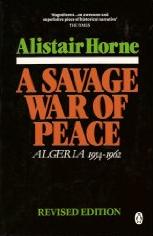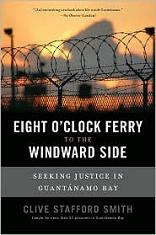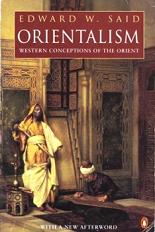
A Savage War of Peace
Alistair Horne
604 pages including index
published in 1977
Remember how the White House a few years ago, in one of their periodic attempts at convincing the rest of the world George Bush is not a complete moron, released a list of books supposedly read by him in the past year? One of the books on the list was this, A Savage War of Peace, Alistair Horne’s history of the Algerian struggle for independence from France. What’s more, the same book was also reported to be widely read in the US army occupying Iraq and Afghanistan as part of an attempt to understand the enterprise they were engaging in. This isn’t necessarily a recommendation of course; another much read book in the US army is that piece of pseudoscientific racism, The Arab Mind. A sort of mixed bag of recommendations then: this is clearly an important book in that it seems to have shaped the American strategy in Iraq and Afghanistan, but does this make this a good book?
Fortunately, it does. Had Bush read this book in 2002 before the War on Iraq, and had he been able to actually understand what he read, he may have actually decided against the invasion. Everything that happened in Iraq is described here, every mistake and failed strategy the Americans would use, written down twentyfive years before the war even started. No wonder various army generals studied it so vidly. Colonial wars follow certain patterns it seems and what happened in Algeria in 1954-62 can be used as a guide to Iraq forty years later.

